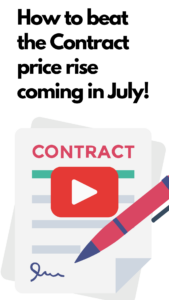Home > Buying property in NSW
Found your dream home?
Let’s turn it into reality.
We’re home to lawyers and certified conveyancers, dedicated exclusively to helping people with property transactions. We believe in making it simple for people to buy, sell and transfer property.
Whether you’re buying your first home, upgrading or downsizing, we’ll help you through buying property in NSW, from research to settlement.
Finding a property to buy
The first step in buying property in NSW is to find the property that is right for you.
Once you have a few homes on your shortlist, you can start making enquiries with agents, getting some price guides, and making a note of inspection times.
Due diligence
Due diligence ensures you complete essential checks you need to do before buying a property.
Buying property in NSW is a huge investment, so it’s a good idea to unearth any potential problems with the property before you make an offer. It can also be a useful bargaining tool when negotiating with a vendor.
Building and pest inspections
A building and pest inspection is conducted by a qualified building professional who inspects the property and looks for structural issues such as cracking, sagging or rising damp, as well as infestations of pests like mice and termites. The findings are compiled in a detailed report, outlining any limitations of the inspections, such as inaccessible areas.
Buyers normally arrange their own independent pest inspections, but sometimes buyers can purchase a vendor-supplied report at a reduced cost. In these cases, the eventual buyer will usually pay the full price of the report.
If you’re buying an apartment in NSW, you’ll need to review a strata report which is the equivalent. As well as revealing any building issues, this will detail the financial health of the building, including the state of the capital works fund. Buyers will know whether they can expect any special levies for major repairs in the future.
Contract review
Once you’re satisfied with the building and pest report or strata report, we’ll request a copy of the contract from the agent if you haven’t already.
The contract contains all the information about the property including the purchase price, the settlement date, and the zoning of the property. It will also contain any special conditions or deadlines, as well as any matters relating to the title, such as covenants, easements or restrictions.
We may suggest changes to be made to the contract to protect your interests, and you can also propose changes like a longer settlement period.
Making an offer
Once you’ve found a property you like, reviewed the building or strata report and the contract, and have home loan pre-approval in place, you’ll be in a strong position to make an offer or bid at auction.
Deciding how much to offer for a property can be stressful. It depends on the market conditions, how many people are interested in the property, and your own personal circumstances.
Once your offer is accepted, we will be ready to exchange contracts.
Exchange of contracts
We’ll work hard to enable a quick exchange of contracts – so that the property is secured for you.
At the point of exchange of contracts – subject to any cooling-off period – you are fully committed to the purchase of the property.
Paying the deposit
When contracts have exchanged a deposit of 0.25% of the purchase price is paid to the agent.
Cooling off period
The cooling-off period is the length of time after purchase in which buyers can back out of the transaction. During this period, buyers can undertake further investigations of the property and cancel the sale if they decide not to go ahead.
The standard cooling-off period is usually five business days. Buyers who cancel the sale will have to pay a termination fee, usually a small percentage of the sale price. Making a pre-auction offer will usually require you to waive your cooling off period. That means all your investigations need to be done, and home loan pre-approval should be in place before you make an offer.
Bidding at auction
If you’re successful at auction, you’ll normally need a 10% deposit ready to hand over on the day. Some agents may accept a bank transfer, otherwise, you’ll need a chequebook or a bank cheque.
Settlement
The settlement period is when both parties complete the transaction. This is where we do the bulk of our legal work, ensuring you are purchasing exactly you have been sold.
Government and statutory searches
Before settlement, we complete government and statutory searches to ensure the seller has no interest in the property. We’ll also arrange a title protection policy for you, prepare a form of transfer for the property, prepare settlement figures and arrange settlement cheques.
Before settlement you should arrange for home (and contents) insurance to ensure you are covered from settlement.
On settlement day, the seller receives the money owed, the property is legally transferred to the buyer, and the buyer is given the keys.
6 Steps to buying a property
From contract review through to settlement, everything we do is reliable and done with oodles of integrity. We’re here to help with all the steps of your property journey.
Step 2
We negotiate the terms of the contract in partnership with you and the vendor’s solicitor or conveyancer.
Step 3
Step 5
Step 6
How we help
Reviewing the contract
Before you sign the contract for your new property, we’ll review it to ensure there are no hidden surprises. Our property lawyers and conveyancers will check all clauses and make any amendments you’d like.
The essential checks
Before you commit to buying, you’ll need a pest and building inspection. This report gives you peace of mind, and may even save you from a bad investment. We can help you find a pest and building inspector in your area.
Negotiating a fair deal
Don’t just settle for what the seller is offering, everything is negotiable. Our property lawyers and conveyancers will help you discuss exactly what is and isn’t being sold. We’ll make sure you’re getting a fair deal.
We’ll fast-track your matter
When buying or selling a property, you need the right team behind you. It’s emotional, and things often move quickly. We move fast because we never underestimate the importance of our role and it’s impact on your future.



